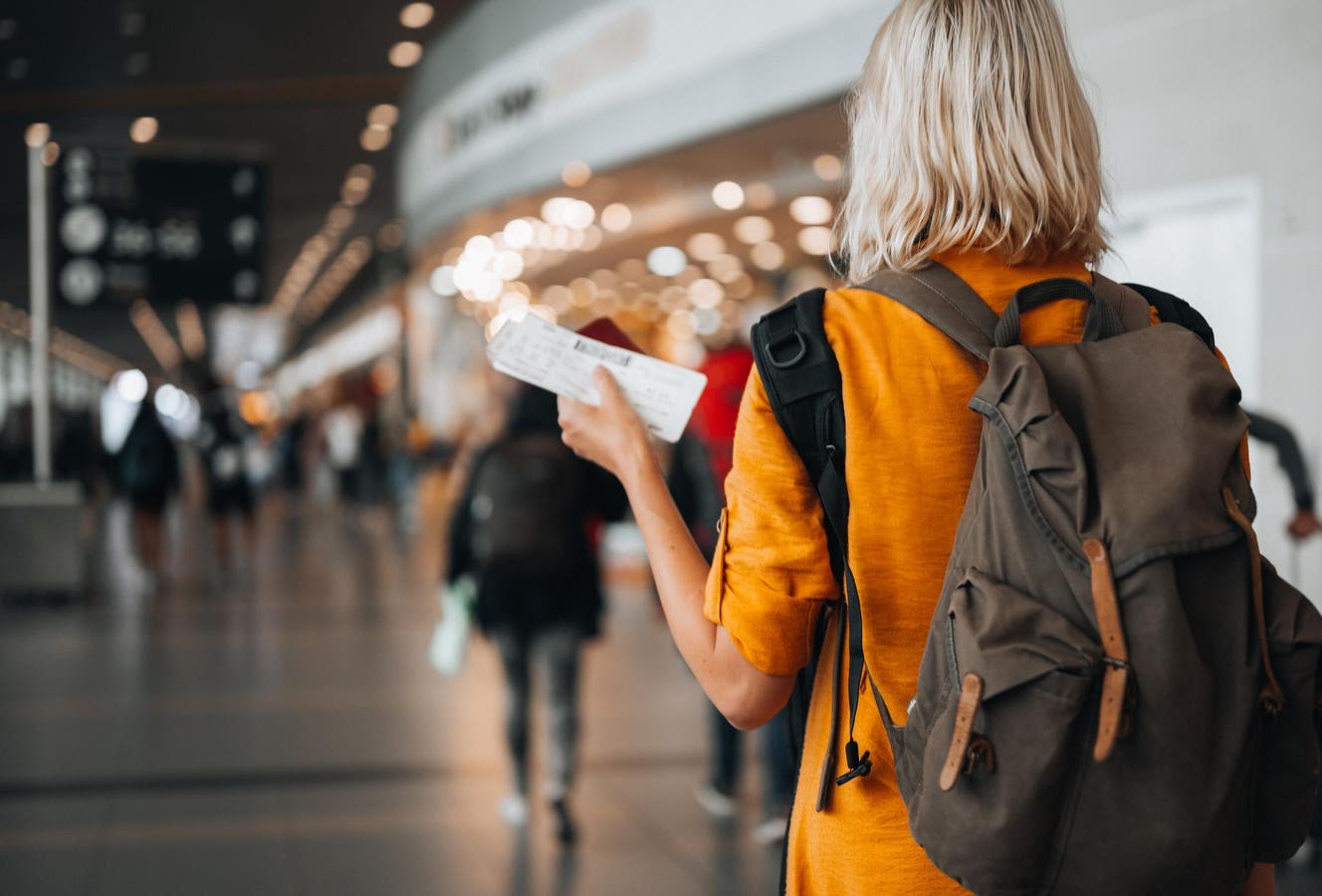Skiplagging is a way to score cheap flights, but it can get you in trouble with airlines because it violates their terms and conditions.
getty
Travelers have all kinds of hacks for saving money on flights—from joining airline loyalty programs to flying on certain days and packing light to avoid extra baggage fees. But one controversial money-saving travel hack that’s gained notoriety recently is a practice known as skiplagging.
Skiplagging (also known as the hidden city flying) is where you skip out on the last leg of your flight, getting off at the layover city rather than the final destination, Aktarer Zaman, CEO of Skiplagged,a search engine that uses an algorithm to reveal hidden-city flights, explained to Forbes.
He gives this example: A flight from New York to Orlando might be $350, but a similar flight from New York to Dallas with a layover in Orlando might be $170. His platform shows travelers both of those routes, and those who choose the cheaper option then get off at the layover destination, which, in this scenario would be Orlando.
Skiplagged, Zaman says, was built to empower travelers by giving them different flight options so they can save some money when booking flights. About half of the flights booked through the site are purchased within a week of travel, which is when last-minute airfare is more costly, Zaman explains.
But skiplagging requires some extra strategies and you could get in trouble with airlines if they find out that you’re using the hidden city trick.
Ahead, Zaman and other travel experts answer popular questions about skiplagging.
Why Don’t Airlines Like Skiplagging?
Airlines don’t like skiplagging because it undermines their pricing structure.
getty
Airlines aren’t smitten with skiplagging for a couple of reasons.
“Skiplagging disrupts airline pricing models, which are based on passengers completing their full itineraries,” explains Jesse Neugarten, CEO and Founder of Dollar Flight Club, a site that sends cheap flight alerts. “When travelers skip legs of their journeys, it can lead to lost revenue for airlines and complicate seat allocation and planning.”
Some major airlines have filed suit against Skiplagged. In October, a federal jury awarded American Airlines $9.4 million in its copyright infringement and “ill-gotten” revenue suit against Skiplagged, about half of what the airline’s attorneys asked for in closing arguments. But other have also taken turns going after Skiplagged—a judge in 2015 dismissed a United lawsuit against the site, and Southwest’s 2021 lawsuit was settled out of court.
American Airlines has said that when a customer doesn’t fly all of the segments on their itinerary, it can lead to operational problems with checked bags and prevent other customers from booking a seat when they might have an urgent need to travel.
“Intentionally creating an empty seat that could have been used by another customer or team member is an all-around bad outcome,” the media statement said.
The way Zaman sees it? If airlines were to reduce airfare to hub cities, it’d shut down the practice of skiplagging entirely.
What Are The Pros and Cons of Skiplagging?
Skiplagging can reduce airplane ticket prices by about 47%.
getty
The appeal of skiplagging is simple: it can save you a lot of money, Neugarten says.
“For budget-conscious travelers or those frustrated by the rising cost of airfare, skiplagging offers an opportunity to stretch travel budgets further,” he says. “It’s a tempting option for anyone looking to hack the system for cheaper flights.
Those who book on Skiplagged save, on average, 47% or $180 on their flights, Zaman says. In the past year, 298,967 people have skiplagged, according to the data, saving a combined $53.6 million, according to the site’s statistics.
The cons surrounding skiplagging can include landing in hot water with your preferred airline.
Skiplagging is not illegal, but it does violate the terms and conditions set forth by most airlines, explains travel advisor Duncan Greenfield-Turk, CEO of Global Travel Moments.
Airlines could punish travelers who try the hidden-city trick by stripping away miles and frequent flyer benefits, barring them from future flights, and charging them for the “missed” segment, Greenfield-Turk says.
Still, Zaman says about 99.7 of travelers who have used the site to skiplag in the month were able to successfully complete their trips without any problems.
How Do You Get Caught Skiplagging?
If you plan to skiplag, you can’t check your bags because they’ll end up at the final destination.
getty
Skiplagging does require some extra strategy when traveling.
For starters, travelers can’t book round-trip flights if they’re skiplagging. You’ll need to book one-way tickets if you are traveling. That’s because if you miss a leg on your departing flight, the airline will cancel the rest of your trip.
If you’re skiplagging, you can’t check a bag because it will arrive at baggage claim in your itinerary’s final destination. Zaman recommends traveling light—taking only a backpack with you that can fit under the seat of you. “Anything larger risks getting checked at the gate, and all checked bags will end up at the final ticketed destination,” he says.
When you book your flight, don’t plug in your frequent flyer account. If you do, the airline might strip any miles you’ve acrued with them, he cautions.
A final caution: Don’t overuse hidden-city itineraries. Flying on the same route with the same airline many times within a short time frame raises a red flag that you’re frequently skiplagging, Zaman says.

